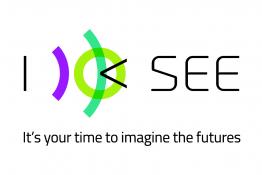
Should teachers remain neutral about socio-scientific issues? Resources on this pages suggest class activities and teaching resources.
Research has shown that many of us teach about controversial science on a regular basis, but that few of us have had training or feel well-prepared. How can teachers approach sometimes controversial science issues including evolution and climate change? Should teachers remain neutral? Is it deceitful to pretend to pupils that you don't have an opinion?
The resources below have been made freely available to inform and help teaching and learning of science issues that are perceived as controversial areas in the classroom. There are part of the teaching sequences available from the PreSEES project.
The resources explore the following questions:
- What is a controversial issue? Why should science teachers teach something that’s controversial? How can controversial issues be taught? and what support is available for teachers?
- Should you teach evolution? Should you tell students about intelligent design? Isn't it just a theory? James looks at the misconceptions surrounding teaching evolution and ways to deal with tricky questions from students.
- What are common misconceptions and myths about climate change? What are the challenges in students' understanding of climate change and what opportunities are there to teach about it within the curriculum?
- How should we approach teaching of controversial issues in primary science? The resource suggests teaching sequences for climate change and looks at challenges.
- What are socioscientific issues and why should you teach about them?
Files
Click links to download individual files or…
Preparing Science Educators for Everyday Science (PreSEES) is a European Union science education project that involved teacher educators from seven countries including the UK. The focus of the project has been on helping trainee science teachers to become more effective at engaging their students with controversial issues. The project has produced a number of resources which are available for free here. The project partners set out to develop three modules for pre-service teacher training (primary and secondary) to promote the teaching of socio-scientific issues as a means to promote everyday science and other aspects of science (e.g., argumentation, history of science, nature of science, attitude change, use of technology).
As part of the UK’s contribution to the PreSEES project, the ASE and King’s College London ran a week-long series in October 2014 of free after-school webinars led by acknowledged experts in the field. The presenters have kindly shared their presentations to provide resources for teachers.


